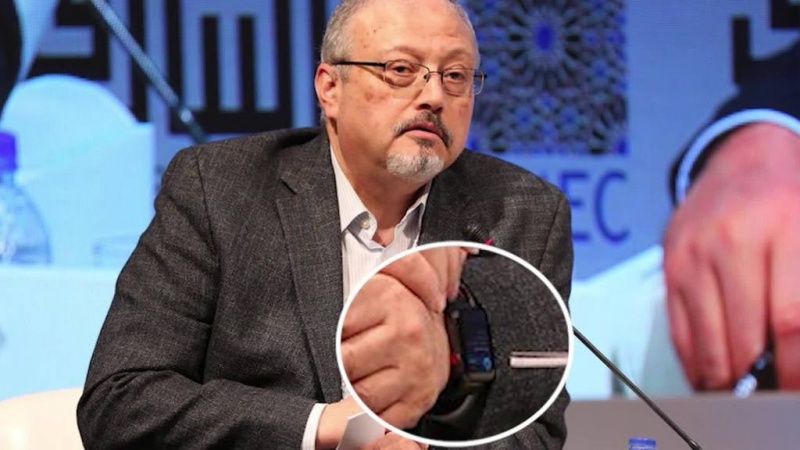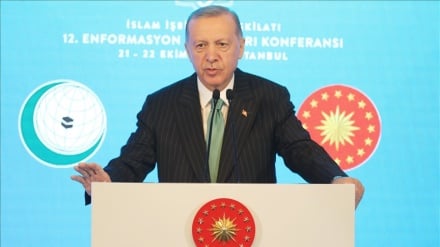The death of Khashoggi reveals more than a murder
On the 2nd October 2018 Jamal Khashoggi entered the Saudi Arabian consulate in Istanbul, apparently seeking documents in relation to his recent divorce.
He has not been seen since. The Saudis initially claimed he had left the consulate alive. In the face of a steady leak of material from the Turkish authorities they offered a variety of implausible explanations before conceding that he was in fact dead.
The whereabouts of Khashoggi’s body, whole, dismembered or dissolved in acid, has not been disclosed.
What is now acknowledged as a brutal murder of an exiled journalist was the basis of much outrage in the western media. In the catalogue of Saudi atrocities in recent years, the death of Khashoggi rates rather low, but that did not stop the barrage of criticism directed at Saudi Arabia in general and its political leader Mohammad bin Salman (MbS) in particular.
In recent days, more details have emerged about the surrounding circumstances of the murder, including the fact that the United Kingdom government knew in advance what the Saudis planned for Khashoggi but failed to warn him. They were unlikely to have been the only intelligence agency privy to Saudi plans.
His death therefore, and the furor surrounding it, has therefore to be seen as part of a wider geopolitical scenario. Khashoggi’s death, as unfortunate and as brutal as it was, can be seen as a pawn in the greater game.
To understand what that game was, it is necessary to go back to when MbS became the heir apparent and began his political program. There were token gestures that attracted western media attention, such as permitting women to drive. They were however, a smoke screen for much more significant geopolitical moves, none of which would have endeared him to the Americans and their allies.
The Saudi economy relies almost exclusively on the sale of oil, and that commodity is not only being depleted, it is also inextricably tied to the United States dollar. This has been the case since the early 1970s when the Nixon administration offered US ‘protection’ in exchange for all oil sales being denominated in US dollars.
For decades, that arrangement served the Saudis and the Americans very well. It’s brought untold riches to the kingdom, very little of which was wisely spent. Saudi Arabia became one of the greatest sponsors of terrorism throughout the world, supporting radical militant groups in Pakistan, Indonesia, the Philippines and many other places.
All of this was tolerated by the West and the United States in particular. There were a number of reasons for this. First, the use of terrorists served US foreign policy goals, undermining governments that were insufficiently obedient to American wishes.
Secondly, and of vast importance, it sustained the unique role of the dollar in international trade, in effect forcing other countries to subsidize the US economy that would otherwise have been exposed to the inevitable consequences of running huge internal and foreign trade deficits.
Thirdly, the Saudis were willing to spend hundreds of billions of dollars in buying US armaments. Why such a relatively small country would need to make such huge purchases has never been obvious. That they would buy what was obviously inferior military hardware that their own military forces were incapable of utilizing effectively was also apparent.
Saudi Arabia’s inability to militarily defeat Yemen, one of the world’s poorest countries, even with the help of US and UK armaments and intelligence, and the widespread use of foreign mercenaries to wage this war, has exposed their military limitations.
It is only recently that the appalling consequences of the war on the Yemeni people has intruded upon Western consciousness. Little or no attention has been given to the real reasons for the Western backed Saudi war on Yemen, and that is its geographical location.
Yemen is on one side of the Bab-el-Mandab Strait (“the gulf of tears in Arabic”) on the other side of which is Djibouti, home to China’s only foreign military base. The Bab-el-Mandab is one of only two maritime outlets for Saudi Arabia to the open sea and thence to the rich markets of Asia. The other outlet is the Strait of Hormuz, controlled by Iran, the alleged opponent country to both the United States and Saudi Arabia.
The war in Yemen is yet another proxy war fought for control of oil and in this case its distribution. That key strategic role that Yemen plays is the main reason the Western nations have largely ignored the plight of its citizens, and manifold breaches of international law. The sincerity of the new found western concern for Yemeni victims of their aggression is as believable as the faux outrage at Khashoggi’s murder.
There is some evidence that MbS was moving to establish a new course for Saudi Arabia. This was not the token gestures at internal reform or pseudo liberalization. It was rather an attempt to lessen the US stranglehold on the country. In particular this involved a series of moves toward closer cooperation with Russia and China. This manifested itself in various agreements including that Russia would build two nuclear reactors; co-operating on the world price for oil; and discussing the purchase by Saudi Arabia of the Russian S400 anti-ballistic missile system.
China was touted as a possible investor in the public float of the Saudi Oil Company, now in abeyance. Again, none of these moves would have endeared them to the United States for whom Saudi Arabia has been the golden honeypot for the sale of armaments without doubt inferior to their Russian counterparts.
Even more infuriating for the Americans, MbS was willing to not only direct a greater share of Saudi oil exports to China; he was willing to consider payment for oil in Yuan. This is a move that would accelerate the de-dollarization of world trade. There are plenty of motives for such a transition away from the dollar, as a rapidly growing number of nations are tired of the United States using the dollar as a weapon in its endless wars against all countries unwilling to comply with their demands.
The experience of Iraq, Libya and more recently Venezuela who similarly moved to eliminate the dollar from their oil transactions would be uppermost in the mind of MbS as he takes his tentative steps to follow a similar path.
Viewed in this context, the recent demands that “MbS must go” in the aftermath of the Khashoggi murder, take on a different complexion. The furious reaction to that murder in some quarters really serves as a smoke screen to obscure the real objectives: to relentlessly crush any attempt to change the status quo that has served US interests at the expense of everyone else for far too long.
On the other side of the spectrum, there may be times when the world community is powerless to prevent injustice, but there must never be a time when it fails to protest.
According to Turkish President Recep Tayyip Erdogan, the order to kill journalist Jamal Khashoggi came from the “highest levels” of the Saudi government, and the “puppet masters” should be unmasked. In his words, “As responsible members of the international community, we must reveal the identities of the puppet masters behind Khashoggi’s killing and discover those in whom Saudi officials - still trying to cover up the murder - have placed their trust.”
Of course, the Saudi regime continues to insist that the journalist died in an unplanned “rogue operation”, while Saudi public prosecutor Saud Al Mojeb says the attack was premeditated. However, as maintained by President Erdogan, the Saudi consul in Istanbul is lying “through his teeth” and the Saudi chief prosecutor is refusing to cooperate, stalling the process and not answering simple questions.
As is often the case, there is more to Khashoggi’s grisly murder than just “rogue operation” by a group of security officials. Many other Saudi journalists face similar threats, attacks and gruesome fate, often instigated by the regime itself. The international civil society has already demonstrated the toxic nature and outsized reach of Saudi incitement against journalists, but it is yet to demand that it stop through action, such as a resolution at the United Nations.
It is, therefore, the UN’s responsibility to ensure that crimes against journalists like Khashoggi do not go unpunished. This could only be the case if an international body – not the Saudi regime - conducts impartial, prompt and thorough investigations.
Riyadh has not yet responded adequately to the crime against Khashoggi, which means impunity for crimes against other Saudi journalists with further violence and attacks.
This is important, because President Erdogan has highlighted the role that Saudi leaders themselves play in condoning and inciting violence, framing Saudi reporters as enemies of the people or extremists. This includes extrajudicial killings, incitement of hatred and violence against the media that report Saudi war crimes, and support for extremist militants in the ongoing wars on Syria and Yemen.
True, the grisly murder and dismemberment of Khashoggi somehow managed to grab the headlines, thanks to the courage of Turkish President Erdogan and intelligence agencies. But many more do not, particularly those citizen journalists and bloggers still in Saudi Arabia, Bahrain, and the United Arab Emirates prisons, where the scale of the issue of human rights violations often goes unremarked.
Women journalists and bloggers have also been increasingly exposed to violence and imprisonment. But despite all of this, legal impunity for perpetrators of crimes against journalists remains the norm, as most cases are unresolved and unreported. This includes the targeted assassination of journalists that are investigating corruption and abuse of power, expressing political or social views which the autocratic regimes wish to silence, particularly in Bahrain. Some simply stand as a voice of peace in times of war.
Irrespective of the motive, the systematic targeting of journalists in the Persian Gulf Arab littoral states is still a telling reflection of how important and vital their work is. No doubt the killing, kidnapping, enforced disappearance, arbitrary detention and torture of these truth-seeking journalists and associated media personnel in places like Saudi Arabia, Bahrain and the UAE are a violation of Article 19 of the Universal Declaration of Human Rights, which, among other things, recognizes the freedom to “seek, receive and impart information and ideas of all kinds, regardless of frontiers”.
Those who play with fire in Saudi Arabia must remember that smoke gets in their eyes. It is time for the United Nations and international human rights groups to ensure accountability for crimes the Saudi regime and its partners commit against citizen journalists, particularly those who face pressures and threats of all sorts, including murder, for shedding light on the ongoing humanitarian crises in Syria and Yemen.
The world community should bring those who perpetrate crimes against journalists to justice, stop them from manipulating growing public opinion, reduce and end their violent conflicts in Syria and Yemen, and ultimately ensure the broader benefits to global peace and security.
That was an article by James O’Neill, an Australian-based Barrister at Law, exclusively for the online magazine “New Eastern Outlook”. It was coupled with some ground realities from Fars News Agency.
EA



